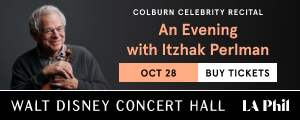How to pronounce Tchaikovsky (??????????)
How to pronounce Tchaikovsky (??????????)
Finally, would you like to hear ?????????? spoken by a Russian native? Simply copy and paste the Cyrillic spelling and paste it into the link below. Select Russian as the language and click on the “say it” button: http://www.oddcast.com/home/demos/tts/tts_example.php
Replies (6)
I have my own theory about why the T is there. I have no academic linguistic credibility whatsoever but I'll share it because I think it could be viable
I am supposing French and English took Tchaikovsky's name from German after he made headlines in the music center of Europe there. The Germans have a somewhat awkward way to literate the "Ch" sound. They take the "sh" sound and add a "T" in front. What we get then is Tschaikowski. This "Tsch" carries redundant letters in both English and French. The simplest way to make it look less strange is to remove the S. Having the T in front of Ch doesn't do anything anyway, and we see it in words like "pitch" and "ditch". I think this way also explains why from time to time in the English-speakign world, we still encounter Tchaikovsky's name spelled with a "W" as Tchaikowsky, I know I've seen that before in articles and programs. No academic would transliterate a "V" sound from Russian into a "W" in English, so people from another profession (journalism) must have imported his name before anyone else. Thsi is just my own theory.
Think of how much the Germans influence music anyway. And even now, in the 21st century, I came across an edition of Scriabin works by Peters Ediiton. Of course they are German, but this edition is in English, yet they chose to spell his name in big bold letters on the front as "Skrjabin". I think seeing these German transliterations had a big effect when Tchaikovsky was just getting known outside of Russia.
Some academic writers on music (Tarushkin, for example) have taken to spelling the name "Chaikovsky," which makes the pronunciation more transparent for English speakers, leaving the de-voicing of the "v" and the reduction of "ai" to "i" as the only problems.
The initial "T" in the traditional spelling seems to come from French, which represents the Russian and English "ch" sound (which is foreign to French and only occurs in words of foreign origin) as "tch."
Unfortunately, what seem to have been Cyrillic characters in the original post show up as strings of question marks.
'I came across an edition of Scriabin works by Peters Ediiton. Of course they are German, but this edition is in English, yet they chose to spell his name in big bold letters on the front as "Skrjabin".'
The "i" or "j" in the transcription of Scriabin doesn't represent a separate Russian vowel or consonant--it indicates that the "r" is palatalized, that is, pronounced with the back of the tongue flattened against the palate (a difficult sound for English speakers). In accurate transliterations of Russian, palatalization is often represented not by a separate letter but by an apostrophe: "Skr'abin."
In the Russian spelling, the palatalization of the consonant "r" is indicated by a vowel symbol that's different from the vowel symbol used to represent Russian "a" after a consonant that isn't palatalized. The Cyrillic symbol for "a" after a non-palatalized consonant looks like the "a" in the Roman alphabet but the symbol for "a" after a palatalized consonant looks like a backwards "R"--the symbol that's often used to represent "r" in fake Russian. At the beginning of a word it's actually pronounced "ya" and in isolation as a monosyllabic word it's the first-person singular pronoun "I."
Although half of my ancestry is Russian and my paternal grandparents spoke in their native tongue often, I wasn't around the language enough to learn anything, and I don't know or work with any individuals from Russia. But I'm trying hard to get the gist of how to pronounce Tchaikovsky's name correctly. Heck, it took me 60 years to learn to spell it.
From reading this thread, and paying attention to those of Russian background (especially musicians) occasionally interviewed on TV, I'd like to ask if the following phonetic attempt is correct......"Che-KWO'-fskee" - The "KWO" sounds to me almost like the word "cough" with a slight "w" after the "c" and the lips rounded for the rest of the "cough" slightly in an "o" as one about to whistle.
Have I got it right?
Thanks.
Cheers,
Sandy
You think English transliterations are bizarre? Try staring at a piece of Polish- or Hungarian-published sheet music for a good thirty seconds before figuring out who "Szosztakovicz" and "Csajkovszkij" are. :P
This discussion has been archived and is no longer accepting responses.
Violinist.com is made possible by...
Dimitri Musafia, Master Maker of Violin and Viola Cases
Johnson String Instrument/Carriage House Violins
Subscribe
Laurie's Books
Discover the best of Violinist.com in these collections of editor Laurie Niles' exclusive interviews.

Violinist.com Interviews Volume 1, with introduction by Hilary Hahn

Violinist.com Interviews Volume 2, with introduction by Rachel Barton Pine










July 26, 2009 at 05:11 AM ·
Hi Yakov,
Thanks! We had a thread about this some time ago -- should the stress fall on the first, or on the second syllable? Turned out to be the second, as is apparent from your detailed analysis, too.
Would you believe that in a course of Russian on Dutch TV, in the late sixties/early seventies, a Mr. Smirnov, hired as the Native Speaker, pronounced the name with the first syllable stressed? I still don't know if that was due to local variation, or if he was just pulling our leg.
Bart